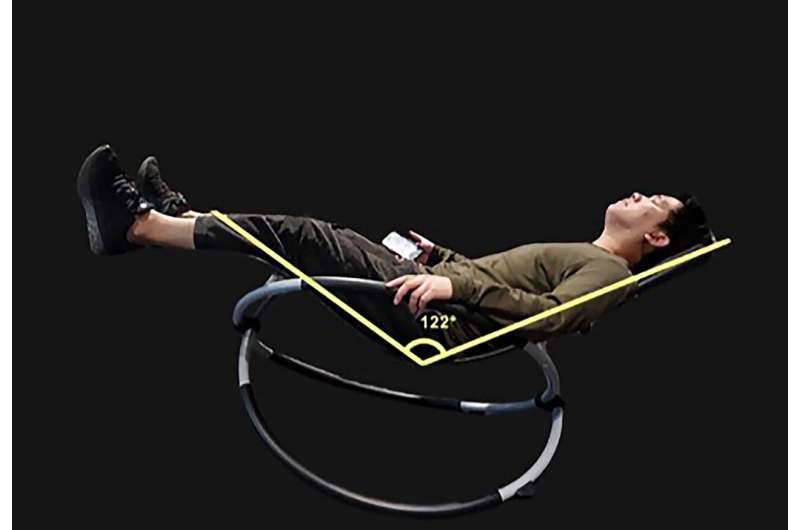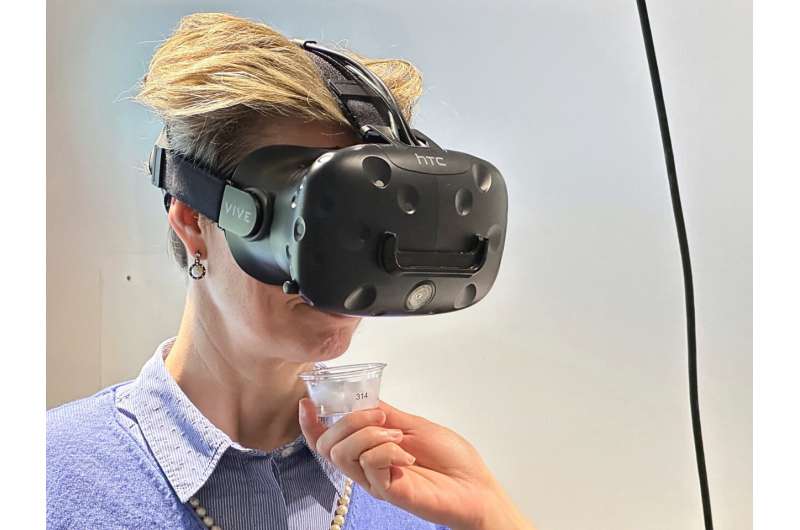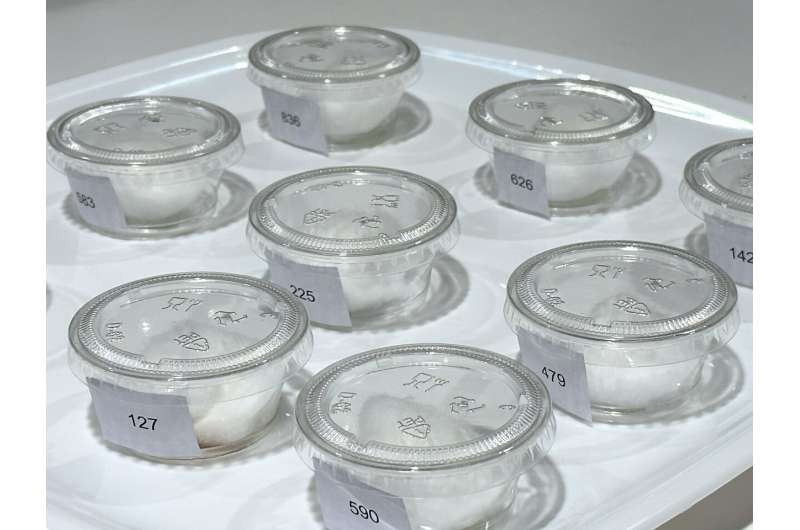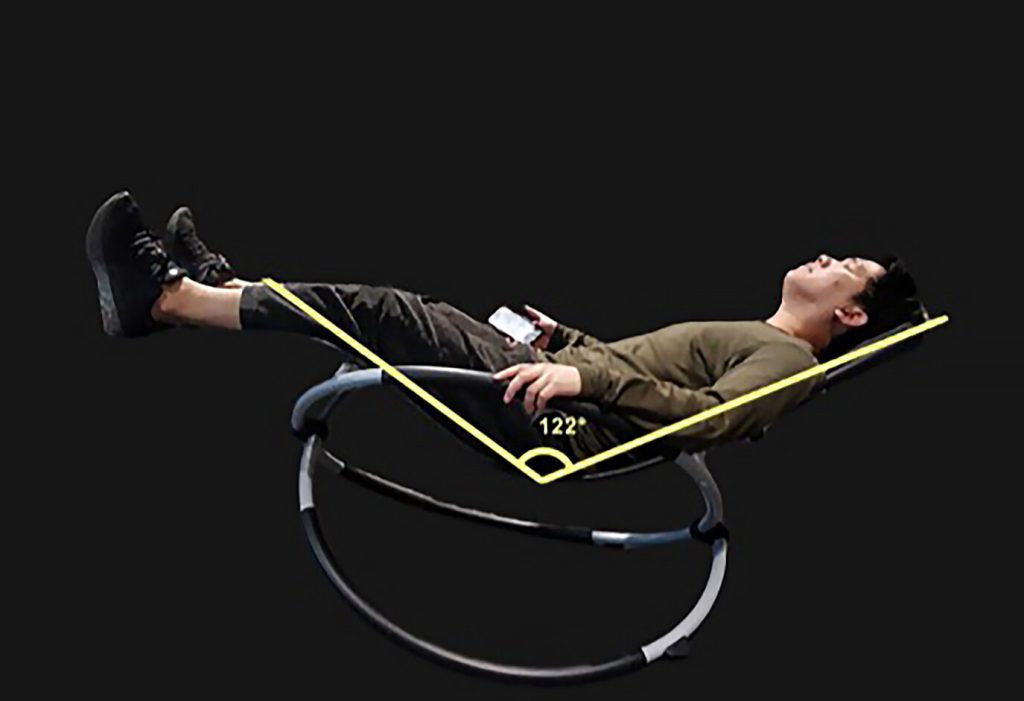
New research from RMIT University found confined and isolating environments changed the way people smelled and responded emotionally to certain food aromas.
The team in this study compared 44 people’s emotional responses and perception of eight food aromas in two environmental scenarios: sitting in reclined chairs that mimic astronauts’ posture in microgravity; and then in the confined setting of the International Space Station (ISS), which was simulated for participants with virtual reality goggles.
The aromas the team tested on participants were vanilla, almond, lemon, lemon myrtle, eucalyptus, peppermint, vinegar and lemongrass.
The research, published in Food Research International, builds on previous work by the team and aims to help explain why astronauts report meals taste different in space and struggle to eat their normal nutritional intake over long missions, which has been reported in the news recently.
The study has broader implications for further research to improve the diets of isolated people, including nursing home residents, by personalizing aromas to enhance the flavor of their food.
Most food aromas were perceived more intensely in the VR simulation
Co-lead Dr. Julia Low said the team found the VR simulation offered an immersive experience of a confined environment, evoking more intense perceptions of all the food aromas tested, except lemongrass, than the microgravity posture.
Her RMIT colleague Dr. Lisa Newman co-led the research and Ph.D. scholar Grace Loke was the first author.
“Lemongrass consists of a more floral and earthy aroma, while the other aromas are pungent, spicy or sweet,” Loke said.
“This difference in profile may explain why lemongrass seemed less intense in the VR setting compared to the microgravity posture.”

Confined, isolating environments influence sense of smell
In an Earth-like setting, eating was often social, but eating in space on long missions can feel quite different, Low said.
“Pilot studies [published open-access in the journal Science Talks] show that spending 10 minutes in VR can induce feelings of confinement, highlighting VR’s effectiveness over other methods such as immersive screens.
“Results indicate that a remote, confined environment such as the ISS and a significant variation in personal sensitivities influence aroma perception, making certain foods smell strange.”
Space studies often emphasized microgravity as the main contributing factor to food’s different taste, but the team’s findings underscored the impact of confined and isolated environments, Loke said.
“This research opens possibilities for personalized meal plans for astronauts and individuals living alone on Earth, showcasing VR’s potential to explore variations in eating when stressed,” she said.
Emotions color how we perceive certain polarizing aromas
In the VR setting, participants reporting positive emotions perceived stronger aromas.
For example, almond and vinegar became more intense when participants were happy or experienced a positive emotion, but if a person was even mildly stressed they perceived a less intense vinegar aroma, Loke said.
This link between stress and vinegar may help explain why astronauts like to eat certain foods in microgravity that they don’t normally enjoy on Earth, Newman said.

Discover the latest in science, tech, and space with over 100,000 subscribers who rely on Phys.org for daily insights.
Sign up for our free newsletter and get updates on breakthroughs,
innovations, and research that matter—daily or weekly.
Next steps
Newman said future studies would combine the microgravity posture with the VR experience for participants, to better simulate the astronaut experience and design food plans for longer missions, including trips to Mars.
“Our findings suggest a simulation using VR and the microgravity posture could aid in training astronauts to adapt psychologically to confined and remote eating spaces and personalize meal experiences for astronauts, as well as isolated individuals on Earth, to support their well-being,” Newman said.
Low said the research was part of a series of small but impactful studies, providing foundational insights into the importance of studying individual variation and how humans react to eating in more stressful environments.
“This research collectively highlights the critical role of our environment on taste and smell.”
The team next wants to investigate how people taste food in different environments and is recruiting participants.
More information:
Food odour perception and affective response in virtual spacecraft and microgravity body posture (1-G) – potential ground-based simulations, Food Research International (2024).
Julia Low et al, Development of a virtual reality spacecraft environment as a ground-based analog for collecting space food sensory data (‘Food in Space’), Science Talks (2024). DOI: 10.1016/j.sctalk.2024.100391
Alicia Tran et al, Exploring fundamentals of immersive environment setups on food sensory perception in space contexts, Science Talks (2024). DOI: 10.1016/j.sctalk.2024.100403
Provided byRMIT University
Confinement may affect how we smell and feel about food (2024, November 18)
retrieved 18 November 2024
from https://phys.org/news/2024-11-confinement-affect-food.html
part may be reproduced without the written permission. The content is provided for information purposes only.



